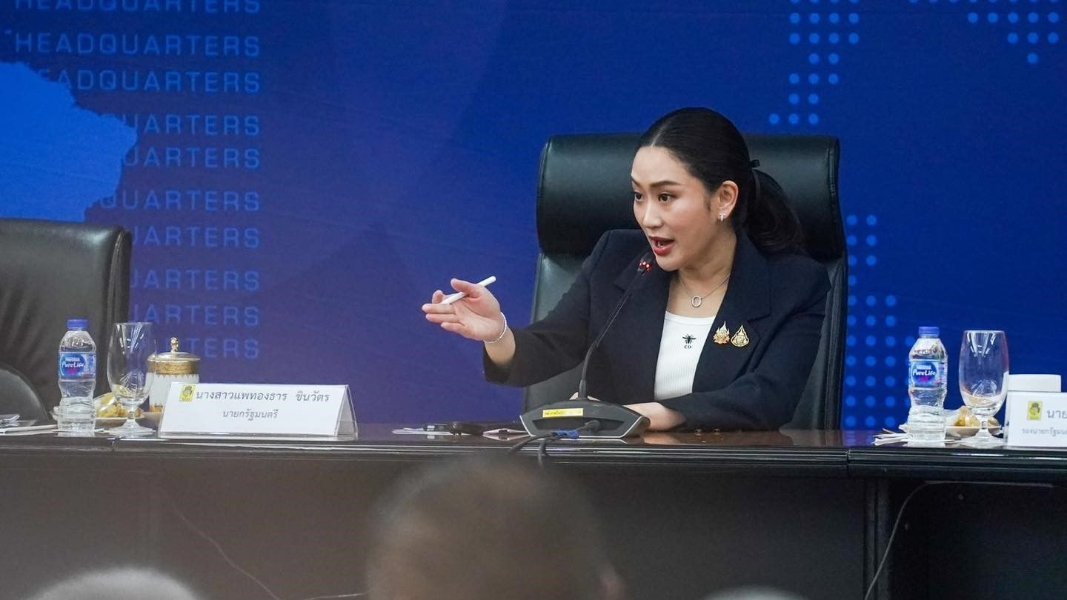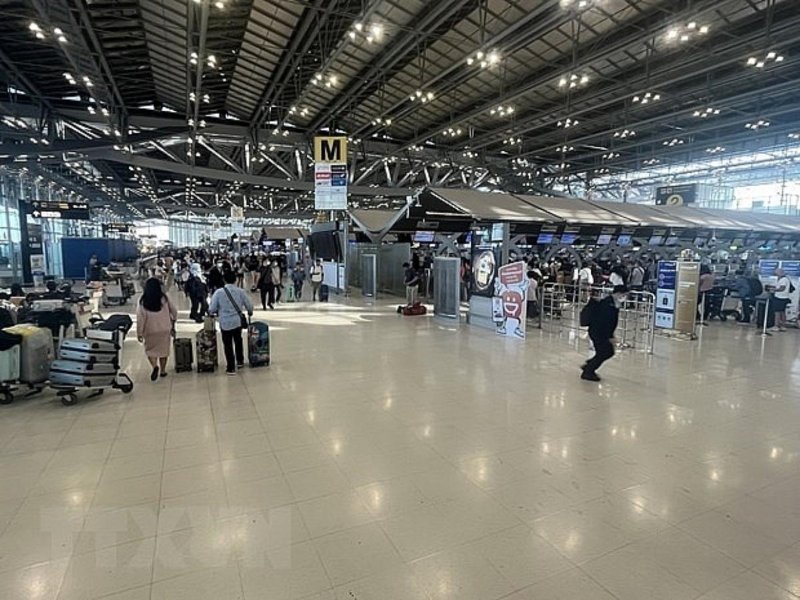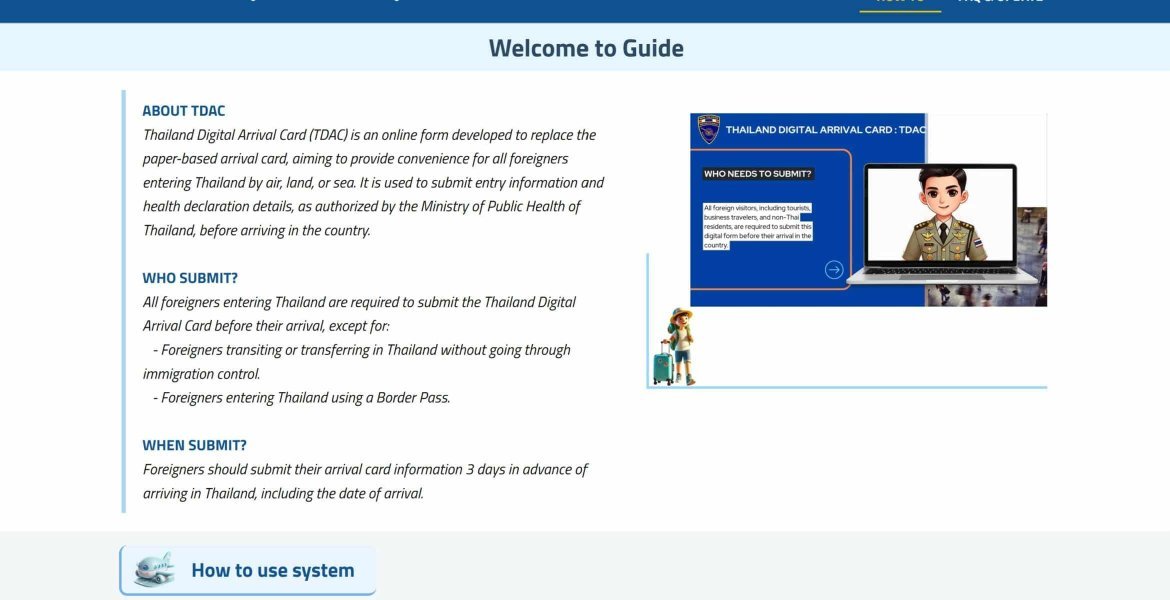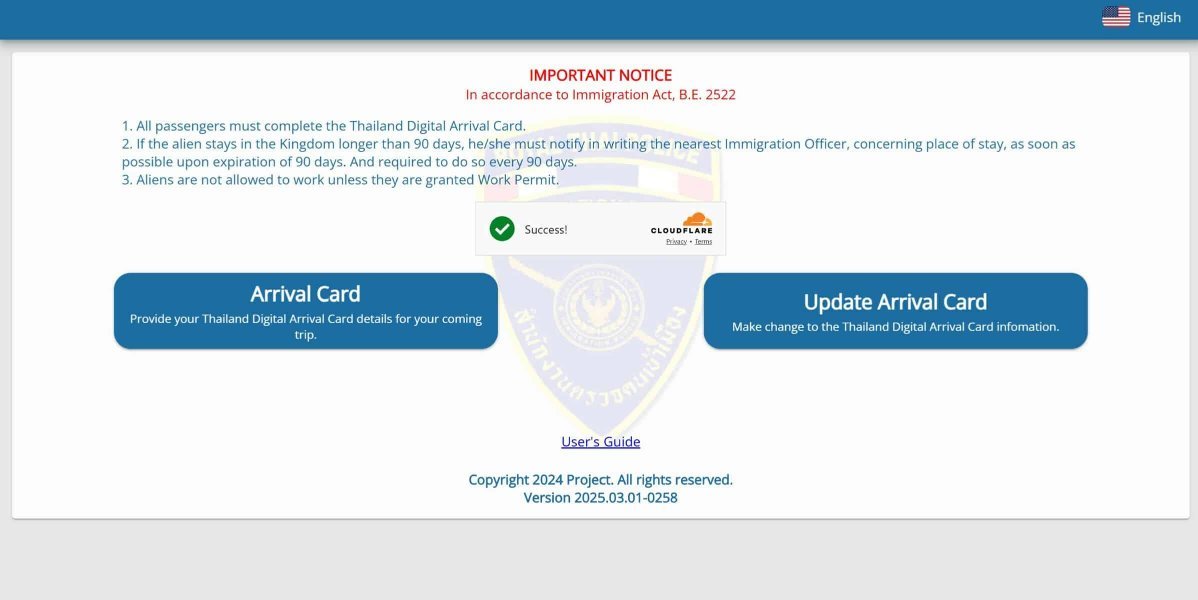Nyheter fra Thailand - levert av ASEAN-now (Tidligere Thai Visa)

My RSS Feed
- Quake Jolts Thai Tourism: Rising Concerns Over Safety

Rescuers use a heavy duty machine to clear the rubble in Bangkok, Thailand, Saturday, March 29, 2025, as they search for victims at the site of a high-rise building under construction that collapsed after Friday's earthquake. (AP Photo/Sakchai Lalit)
The recent 7.7 earthquake in Myanmar has shaken up Thailand's tourism, already wobbling under safety concerns.
The quake, which rocked buildings in Bangkok and other hot spots, may cause a drastic 10%-15% drop in international tourist arrivals over the next fortnight, according to the Thai Hotels Association. Concerns over safety have already led 10% of foreign tourists to check out early, though some returned due to lack of alternatives.
The tourism sector, vital to Thailand's economy, is bracing for a short-term impact as Minister of Tourism Sorawong Thienthong assured tourists of their safety. Meanwhile, an audit of hotels and tourist attractions is underway to ease fears.
The economy, where tourism fuels employment for about 20% of the workforce and accounts for 13% of GDP, is already striving for a 3% growth amid trade export challenges.
While Bangkok faced structural damage, most notably the tragic collapse of a high-rise construction site leading to fatalities, the swift assurance from Thai authorities aims to bolster tourism confidence.
Although the bustling Songkran festival approaches, current bookings are below pre-pandemic levels, reflecting persistent safety concerns. Chinese tourists, a significant demographic, remain hesitant due to past regional safety issues.
Despite the tremors, the year-to-date figures show a slight increase in tourism numbers, reaching 8.9 million, yet challenges remain with falling numbers since February's Lunar New Year surge.
Experts predict a potential decline from the forecasted 38.1 million arrivals this year, highlighting the urgent need to address safety perceptions. For Thailand, known for its enchanting beaches and cultural sites, the quake is yet another bump on an already rocky road in tourism recovery.
Based on a story by Bangkok Post
-- 2025-03-31
31 March 31 20251356259 - Thai Cabinet Gives Green Light to Electricity Cost Cut

File photo
In a move to ease financial strain, Thailand's cabinet has greenlit a reduction in electricity charges from 4.15 baht to 3.99 baht per kilowatt-hour. This decision, targeting the billing period from May 1 to August 31, aims to lessen the financial burden on households and businesses.
Prime Minister Paetongtarn Shinawatra, announcing the decision, stressed that this cut reflects the cabinet's commitment to aiding consumers without the need for state subsidies.
A final nod, however, is pending from the Energy Regulatory Commission (ERC). The Pheu Thai Party, leading the coalition government, has been a staunch advocate for driving electricity costs below the critical threshold of 4 baht per unit.
Energy regulators, though, find their hands somewhat tied, as a segment of the tariff is earmarked for reimbursing the Electricity Generating Authority of Thailand (Egat) and other entities for past subsidies.
Earlier this year, ERC voiced its readiness to cut charges by 0.17 baht per unit, conditional on the government's reduction in spending for renewable energy investment programmes.
Power tariffs undergo a review every four months, factoring in fluctuating costs such as fuel prices and exchange rates. The ERC's projections for the upcoming period indicated possible rates ranging from 4.15 to 5.16 baht per unit, contingent on reimbursement allocations for Egat.
An interesting backdrop to the decision is an ambitious agenda set by former Prime Minister Thaksin Shinawatra, aimed at slashing the electricity tariff to approximately 2.70 baht per unit. Details on how this could be achieved remain unclear.
Notably, a considerable hurdle in reducing costs stems from Egat's binding long-term power-purchase agreements, leading to an electricity surplus of around 30%—a figure significantly higher than global norms.
Despite these challenges, the cabinet's current decision underscores a significant policy direction, oriented towards providing immediate consumer relief. The impending announcement from the ERC will solidify the lower rate, pending further strategic deliberations.
Based on a story by Bangkok Post
-- 2025-04-02
1 April 01 20251356477 - Earthquake Rocks Bangkok: Building Collapses with 40 people inside

A devastating 7.7-magnitude earthquake struck central Myanmar today, sending shockwaves as far as Bangkok and causing widespread devastation. The epicenter was near Mandalay at a depth of 10 kilometers. The impact was strongly felt, prompting chaos and evacuations across the Thai capital.
In Bangkok, a building near Chatuchak Park collapsed, trapping more than 40 people inside. According to police and emergency services, 43 workers remain buried under the debris, while seven have managed to escape. Rescue operations are in full swing, with help from the National Emergency Response and Rescue Centre, as teams work tirelessly to reach survivors.
The Thai government has responded swiftly, convening an emergency meeting to address the crisis. Buildings in Bangkok, not typically designed for such quakes, suffered damage, highlighting the severity of the situation. The US Geological Survey and BBC reports confirm that strong tremors were felt even in southern China, making this a significant regional event.

28-03-2025
— The Thaiger (@ThaigerNews) March 28, 2025
28 March 28 20251356087 - Scammers Exploit Earthquake with Fake Donation Appeals

Picture courtesy of Siam Rath
Following the recent earthquake in Thailand, authorities are warning the public to stay vigilant against scammers who exploit such disasters.
The Central Investigation Bureau has alerted citizens to be cautious of fraudulent donation requests claiming to aid earthquake victims.
The CIB advises that when you wish to donate to a foundation or organisation, you must thoroughly check the destination account beforehand.
Fraudsters often use personal bank accounts or names unrelated to disaster relief.
Please ensure legitimacy before transferring any money. This extra step can help prevent your donations from falling into the wrong hands.
Based on a story by Siam Rath
-- 2025-04-02
1 April 01 20251356497 - Thailand Opens One-Stop Investment Hub to Attract Expats and Investors

Picture courtesy of HSBC
Thailand has launched a new initiative to attract foreign investors and expats by opening the Thailand Investment and Expat Services Centre (TIESC) in Bangkok. Inaugurated by Prime Minister Paetongtarn Shinawatra on Monday, the facility aims to simplify the processes for investment, visas, and work permits.
Located in the One Bangkok building, TIESC is a collaborative project from the Board of Investment, Immigration Bureau, and Department of Employment. Its mission is to reduce bureaucracy and boost Thailand's appeal as a prime destination for global investors and long-term residents.
During the opening ceremony, PM Shinawatra highlighted the facility's role in fostering economic transformation through advanced technology and innovation. The centre's establishment supports the nation’s strategy to enhance its global economic presence and facilitate international business opportunities.
The new hub reflects Thailand's proactive approach, as the country saw 3,100 investment applications totaling 1.1 trillion baht last year. As a cultural and economic bridge, TIESC aims to link Thailand with the international community, providing streamlined services to support professional growth and business development.
In tandem with TIESC's opening, Thailand is revisiting its visa policies, contemplating a reduction of the visa-free stay for tourists from 60 to 30 days, addressing concerns over potential misuse. Currently, no official changes have been made, and visitors are advised to check the latest visa requirements prior to their travels.
With these strategic moves, Thailand positions itself as an increasingly attractive hub for global investors and expats, driving economic growth and fostering international relations, reported The Thaiger.
31 March 31 20251356318 - Thai PM fumes over delayed quake warnings; demands action

Picture courtesy of Thai PBS World
Thailand's Prime Minister Paetongtarn Shinawatra has voiced her dissatisfaction with the National Broadcasting and Telecommunications Commission (NBTC) and the Public Disaster Prevention and Mitigation Department (PDPMD) over their sluggish response to the recent earthquake.
During an emergency meeting today, she expressed her frustration over the delayed SMS alerts, noting that the 1.20pm quake was not reported to the public until more than an hour later.
Pasakorn Boonyalak of the PDPMD stated that his department dispatched the first of four alert messages at 2.20pm after obtaining data from the Meteorological Department.
The NBTC’s Acting Secretary-General, Trairat Wiriyasirikul, reported that their first SMS reached the public by 2.44pm, but was only accessible to roughly 200,000 mobile users initially. He explained ongoing improvements would soon allow up to three million messages to be transmitted simultaneously.
The delayed response left many Bangkok residents, among others, without prompt warnings. Despite claims of over 10 million messages being sent out, several complaints emerged about the lack of alerts.
Trairat assured that the first wave of alerts was directed to metropolitan areas, with subsequent notifications covering other provinces. Nonetheless, Prime Minister Shinawatra stressed that timely dissemination and widespread coverage need urgent rectification.
Following the quake, an inquiry into a collapsed building in Chatuchak has been ordered. Public parks are now open 24/7 to provide temporary shelter for those affected.
The Expressway and Rapid Transit Authority of Thailand (EXAT) confirmed all expressways, except one near Din Daeng, are operational following safety inspections ruling out quake damage. In sum, the focus is on swift improvement of the SMS alert system to better serve public safety in future emergencies.
Based on a story by Thai PBS World
-- 2025-03-31
31 March 31 20251356279 - Thailand's Digital Card Chaos: Say Goodbye to TM6, Hello to Confusion!

Picture courtesy of Vietnam Investment Review
Thailand is scrapping its much-dreaded TM6 arrival form, replacing it with a new digital system—the Thailand Digital Arrival Card (TDAC)—from May 1.
However, travellers should hold off on celebrating as the latest digital venture appears as perplexing as the form it replaces. The TDAC might ease entry formalities eventually, but the system launch is anything but smooth.
For years, non-Thai passport holders have filled out blue-and-white cards to enter the country, but the digital transition is meant to streamline this decade-old process.
The new system requires entrants to fill in personal, travel, and accommodation data online, promising a seamless experience with a QR code to present at immigration. But alas, the jargon-heavy user manual and an unreliable video tutorial only leave people scratching their heads.
As users grapple with a non-functioning tutorial and murky submission procedures, confusion reigns supreme. In fact, there's no word yet on whether travellers must continue carrying a paper form alongside their digital submission.

Screenshots from TDAC website
Further complicating matters, the authorities haven't confirmed if the TDAC will double as a customs declaration or whether an exit card is on the horizon.
Contrary to visa requirements, the TDAC is a separate consideration. No matter their visa status—whether visa-free for up to 60 days, extended duration, or work permits—foreign nationals must fill out the TDAC. The digital card is part of the grand plan to digitise Thailand's immigration, but right now, users are faced with a tangled web of uncertainty.

As the May 1 deadline looms, travellers are left wondering if the immigration process will be ready for prime time or if more chaos will ensue. Without clear instructions and user-friendly solutions for tech-challenged visitors, the initiative is in danger of reinforcing red tape, not removing it.
How the situation unfolds remains to be seen, but one thing is clear: Thailand's digital promise is a work-in-progress. Stay tuned for more updates.
Based on a report by The Thaiger
-- 2025-03-29
29 March 29 20251356153 - Rescue Efforts Continue in Bangkok as Scanner Detects 70 Signs of Life

Photo: Bangkok Post
A US Military scanner has identified 70 potential signs of missing individuals within the rubble of the collapsed State Audit Office building in Bangkok. The collapsed sections between the 17th and 21st floors were the sites of intense focus as many of the missing were reportedly working there during Friday's earthquake.
Bangkok's deputy governor, Tavida Kamolvej, noted that of the 70 detected signs, only six have been confirmed as human bodies. The remainder are still unconfirmed amid the chaos of the collapsed multi-storey structure. With floors pancaked upon each other, identifying precise locations and navigating the debris pose significant challenges to rescue teams.
Rescuers face a daunting task. The 30-storey building was still under construction, which means there's no comprehensive blueprint to guide the rescue efforts. Excavation is painstakingly slow due to metre-thick walls and the precarious state of the site. Heavy machinery cannot be used safely, forcing workers to clear debris manually from the top down.
As the operation enters its fifth day, rescuers are continually adapting their strategies to maximise survival chances for those potentially trapped beneath the rubble. So far, the Bangkok Metropolitan Administration has confirmed 13 fatalities and 19 injuries, with many still unaccounted for.
The situation remains urgent and dynamic, as the rescue mission strives to bring closure and aid to those affected by the disaster, reported Bangkok Post.
1 April 01 20251356438 - Paetongtarn's asset woes: Scandal plagues PM with new allegations

Prime Minister Paetongtarn Shinawatra finds herself embroiled in another scandal as allegations surface concerning her spouse’s reported failure to declare all assets.
The controversy centres on the failure to report a hefty 1.6 million baht cash profit from corporate shares sold by husband Pitaka Suksawat. This omission could lead to possible legal actions and has already sparked intense media scrutiny.
The potential fallout could be severe. A formal petition might soon be lodged with the Constitutional Court to impeach Paetongtarn if these allegations hold water.
This echoes the fate of her predecessor, Srettha Thavisin, who was dethroned due to similar indiscretions. Being the daughter of Thaksin Shinawatra, her political ties invite additional attention to her administration and its moral standing.
Further complicating matters, Paetongtarn faces questioning over an eye-watering 218 million baht in allegedly evaded tax. This figure relates to 4.4 billion baht in corporate share profits supposedly linked to promissory transactions with her family.
People’s MP Wiroj Lakkhanaadisorn has urged Thailand's Revenue Department to dive deeper, considering accusations of potential tax evasion strategies attributed to her leadership.
As the dust settles, the saga around Paetongtarn’s alleged asset concealments could have larger implications for her political career and public perception.
Whether these charges materialise into formal sanctions remains to be seen, yet the ripple effect has undeniably intensified scrutiny over her and her administration. How this impacts her premiership and future leadership credibility will be closely observed by political analysts and the public alike.
Based on a story by Thai Newsroom
-- 2025-04-01
1 April 01 20251356367 - Trump Tariff Turmoil: Thai Car Market Skids to a Halt

Picture courtesy of automoblog
The wheels of Thailand's car industry are grinding slower as President Trump mulls harsh tariffs on imported vehicles. The proposed 25% levy, expected from April 2, has spread a chilling effect across global car markets.
Key players are hesitating, with Surapong Paisitpatanapong from the Thai Federation of Industries noting a significant drop in orders for traditional petrol-powered cars. The landscape is murky: countries are holding back, waiting for more information on Trump's next move.
The impact is visible. Thai car exports dove by 8.34% in February, with only 81,323 units shipped. The year's start has been bleak, with a whopping 18.1% decline in exports, reaching a mere 143,644 cars.
Stricter emissions rules elsewhere are adding salt to the wound for Thailand’s automotive sector, adding further challenges in the market. As if exports weren't enough of a headache, the domestic scene looks equally grim.
February saw local sales dip by 6.68% as tighter lending rules curbed buyers' appetites, leaving the first two months of 2025 with a 9.53% dip in sales at just 97,395 cars. Manufacturers are therefore seeing ripple effects, with February's production slumping by 13.6%.
Optimistically, folks are pinning hopes on the ongoing Bangkok International Motor Show. Running until April 6, it’s seen as a lifeline with potential deals and discounts. Meanwhile, the government's 5-billion-baht loan initiative aimed at spurring SME pickups could jolt some life into the market.
Surapong is pushing for leniency, asking that non-financial bodies be given the green light to offer loans, hoping to revive the stalling market. While clouds gather over Thailand's automotive future, the coming months are pivotal.
All eyes are now on Trump’s looming decision, and until then, it's a waiting game. The industry anticipates that clearer directives will either slow down or fast-track a market recalibration.
Based on a story by The Thaiger
-- 2025-03-26
26 March 26 20251355818















